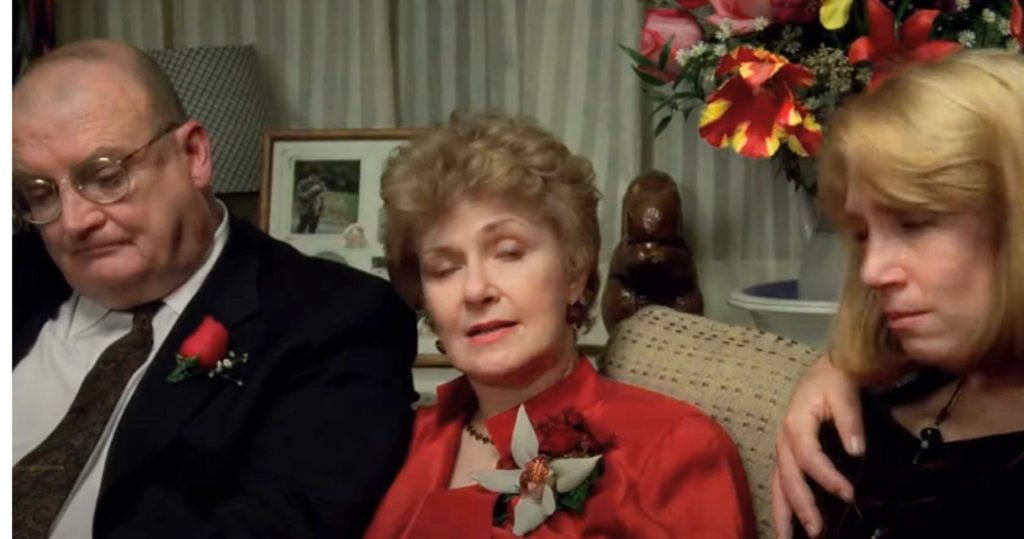
When people talk about Philadelphia (1993), they don’t just remember Tom Hanks or Denzel Washington. They remember the weight of it. The quiet courtroom scenes. The human story behind the headlines. But here’s what makes it even more powerful Philadelphia wasn’t just a movie. It was inspired by real lives, real losses, and a real fight that helped shift how the world viewed AIDS and workplace discrimination.
The Film That Changed Everything
Released in 1993 and directed by Jonathan Demme, Philadelphia was one of the first major Hollywood films to confront AIDS, homophobia, and justice head-on. Tom Hanks plays Andrew Beckett, a promising lawyer fired from his firm after they discover he has AIDS. Denzel Washington portrays Joe Miller, a lawyer who initially rejects Andy’s case because of prejudice, but ultimately takes it and learns what courage really means.
The film’s emotional power wasn’t just about the script. It was about timing. In the early 1990s, AIDS was still widely misunderstood. Fear and stigma dominated headlines. People didn’t talk about it openly, and they definitely didn’t see it reflected with empathy on screen. Philadelphia changed that. It gave the epidemic a human face.
Was Philadelphia Based on a True Story?
Not exactly one person’s life but it was deeply inspired by several real events.
The most direct influence came from the Geoffrey Bowers case. Bowers was a lawyer at the firm Baker McKenzie in New York, fired in 1986 after showing signs of Kaposi’s sarcoma, an AIDS-related illness. He filed a complaint with the New York State Division of Human Rights, claiming he was terminated because of his condition. After his death in 1987, the court ruled in his favor awarding his estate nearly half a million dollars.
Sound familiar? It should. The film’s structure mirrors that fight: the wrongful termination, the lonely legal battle, the slow recognition of injustice. In fact, Bowers’ family later sued the filmmakers for using details of his case without acknowledgment. The case settled out of court, but it confirmed that Philadelphia was indeed shaped by Bowers’ real-life struggle.
Another real influence was Clarence Cain, a lawyer in Philadelphia who faced a similar fate. His dismissal and subsequent lawsuit also echoed many of the film’s themes. Demme and screenwriter Ron Nyswaner combined these real stories to craft Andy Beckett’s fictionalized journey a composite symbol of countless people silenced by fear and prejudice.
Did Andy Win the Case?
Yes and that victory still hits hard.
In the movie, Andy Beckett wins his discrimination lawsuit, but it’s bittersweet. He’s terminally ill, and the justice he fought for comes just as his time runs out. That ending mirrors the real-life tone of many early AIDS cases: victories won at great cost. When Beckett’s family holds his hand as he passes away, the audience feels the mix of sorrow and relief not for one man’s win, but for what it represents.
What Made Philadelphia Feel So Real
It wasn’t just the acting though Tom Hanks won an Oscar for his performance, and rightfully so. It was how the film grounded itself in authenticity.
- Research and realism: Screenwriter Ron Nyswaner worked closely with AIDS patients, activists, and lawyers to portray their stories honestly.
- Cinematic restraint: Demme didn’t overplay the drama. The courtroom scenes are quiet, respectful, and human.
- The soundtrack: Bruce Springsteen’s “Streets of Philadelphia” captured the loneliness of the disease in four haunting minutes. It wasn’t a soundtrack hit it was a voice for those who had none.
The result wasn’t just a courtroom movie. It was a mirror to a moment in history when empathy became revolutionary.
The Real Philadelphia: A City of History and Heart
While the movie Philadelphia takes its name from the city, it also taps into what the city represents liberty, justice, and human resilience. Philadelphia has always been symbolic in American culture: home to the Declaration of Independence, the Liberty Bell, and endless debates about freedom.
For Demme, the title wasn’t just geography. It was metaphor. The film’s heart beats in a city where the nation’s promise of equality was first declared a fitting stage for a story about a man fighting for his basic rights.
And if you visit Philadelphia today, sites like Independence Hall and the Museum of the American Revolution still tell stories of courage and transformation. The city has layers of struggle and hope just like Andy Beckett’s journey.
The Philadelphia Experiment Not the Same Story
Sometimes, people confuse Philadelphia (1993) with another so-called “Philadelphia story” The Philadelphia Experiment a Navy conspiracy theory from World War II. That legend claims a military destroyer, the USS Eldridge, was made invisible through secret experiments.
But let’s clear that up: that story has nothing to do with the Tom Hanks film. The Philadelphia Experiment remains an unverified myth part science fiction, part folklore. The movie Philadelphia is grounded in real social justice history, not naval mysteries.
Why Philadelphia Still Matters Today
Decades later, Philadelphia still feels relevant. Its story of discrimination, courage, and empathy mirrors ongoing struggles not just for people with HIV/AIDS, but for anyone fighting for dignity against prejudice.
It forced Hollywood to humanize an issue that had been whispered about, not spoken of. It gave people permission to feel empathy, not fear. And it set the stage for later works that carried the torch films like Dallas Buyers Club and The Normal Heart owe a lot to Demme’s courage.
In the end, Philadelphia isn’t remembered because Andy Beckett won a lawsuit. It’s remembered because it made audiences question what fairness truly means.
Final Take
As a piece of cinema, Philadelphia blends Hollywood storytelling with real-world pain and grace. Jeremy Jahns might say it’s the kind of film that doesn’t just play in your mind it stays in your conscience. The performances are timeless, the message still urgent, and the truth behind it undeniable.
The city of Philadelphia may have been built on liberty, but the movie reminded us what liberty looks like when someone has to fight for it.

I am Jeremy Jahns – Your Cinematic Explorer
Immerse in movie reviews, Hollywood insights, and behind-the-scenes stories.